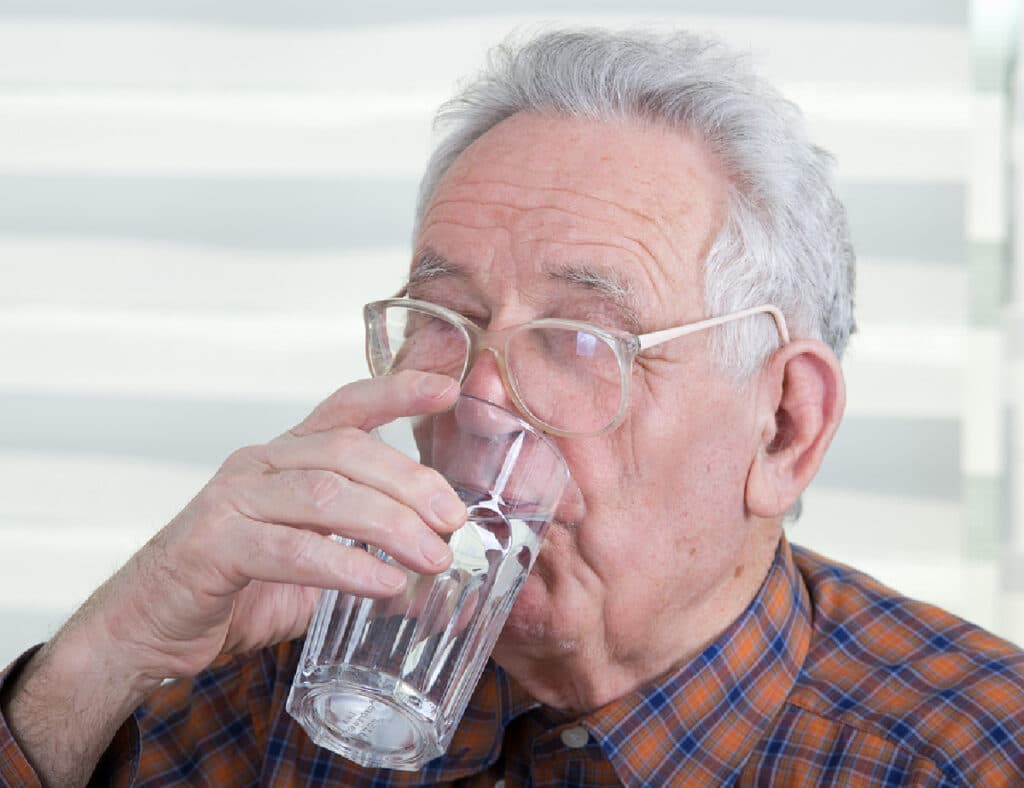Home Health Care: Why Seniors Should Drink More Water
Home Health Care: Given that water makes up more than 60% of the human body, staying hydrated is critical to maintaining appropriate physical function.
Human bodies lose more than eighty ounces of water every day as adults via typical activities. Elderly persons are more vulnerable to dehydration, one of the leading reasons for hospitalization beyond age 65. Because dehydration can have serious repercussions for elders, home health care must understand the causes and symptoms of dehydration and how to help their loved ones stay adequately hydrated.

Home Health Care in Indianapolis IN: Senior Hydration
Older adults experience physiological changes as a natural part of the aging process, increasing our risk of getting dehydrated.
Seniors often lose their sensation of thirst as they age and thus do not drink enough water. Our metabolic rate slows as you age, and you require fewer calories.
Seniors are not as physically active as they used to be, and their appetites diminish, they consume less food, and as a result, they consume fewer fluids from solid food sources. This is problematic for the elderly, as practically everyone obtains approximately half of their daily water intake from solid foods and fruit and vegetable juices. In-home care can help ensure that seniors are getting the proper fruits and vegetables.
Additionally, medication, mental stress, exercise, overall health, and the weather all affect our fluid balance.
Many seniors suffer from chronic health concerns such as diabetes, hypertension, and heart disease and might be on medications that make them more prone to dehydration.
Furthermore, as a senior ages, their bodies lose part of their natural ability to regulate temperature, leaving seniors more susceptible to environmental temperature variations. One such alteration is the thinning of the subcutaneous fat layer beneath the skin, which works as a natural insulator against heat and cold.
Additionally, because seniors sweat less, it is more difficult to stay cool, increasing their risk of becoming overheated. Heat exhaustion and heat stroke are the two most serious conditions that can occur due to heat and exposure to high temperatures in seniors, both of which are predominantly caused by dehydration.
Home Health Care: Dehydration occurs when salts and water are lost from our bodies due to excessive perspiration, intense heat, vomiting, diarrhea, and some drugs.
Severe dehydration can be fatal in the elderly, as there is insufficient fluid in the body to transport blood to the organs. Dehydration symptoms, like those of various other curable health disorders, can be practically identical to those of senile dementia and Alzheimer’s disease.
Dehydration is most frequently manifested by persistent fatigue, lethargy, muscle weakness or cramps, headaches, dizziness, nausea, amnesia, disorientation, rapid, deep breathing, or an elevated heart rate.
The most critical strategy to prevent dehydration in elderly folks is to ensure they consume adequate fluid. Seniors and adults of all ages should consume at least 64 ounces of fluids each day, such as water or non-caffeinated beverages. Caffeinated beverages increase urination and dehydrate the body.
Many fruits and vegetables contain water, so including them in a nutritionally balanced daily diet will help you stay hydrated. Include melons, berries, apples, oranges, and peaches among your fruits.
Additionally, lettuce, cucumbers, celery, and cauliflower are all excellent vegetables. Maintain a constant water supply, especially if you are caring for an elderly individual with mobility issues. If the taste of water bothers you, consider flavoring it using powdered drink mixes that include no added sugar. A home health care services provider can be a great help with this.
If you or an aging loved-one are considering Home Health Care in Indianapolis, IN, please call the caring staff at Home Services Unlimited. Serving Greater Indianapolis Area. Call for Immediate Info & Assistance: (317) 471-0760
Sources:
- Home Care Differences Between Grooming and Hygiene - April 24, 2023
- 4 Senior Home Care Tips to Get Out of a Food Rut - April 13, 2023
- Elder Care Tips For Managing Senior Stress - March 21, 2023
